Finally getting to interview Roger Miret is for me a personal crowning achievement. Although by no means an easy interview. Roger Miret is one of the pioneers of NYHC, and without question a current day presence in the HC scene. Here is the first part of the interview with the hardcore legend. You can find the second part here:
Part 1: Interview with Roger Miret to his autobiography My Riot: Agnostic Front, Grit, Guts & Glory
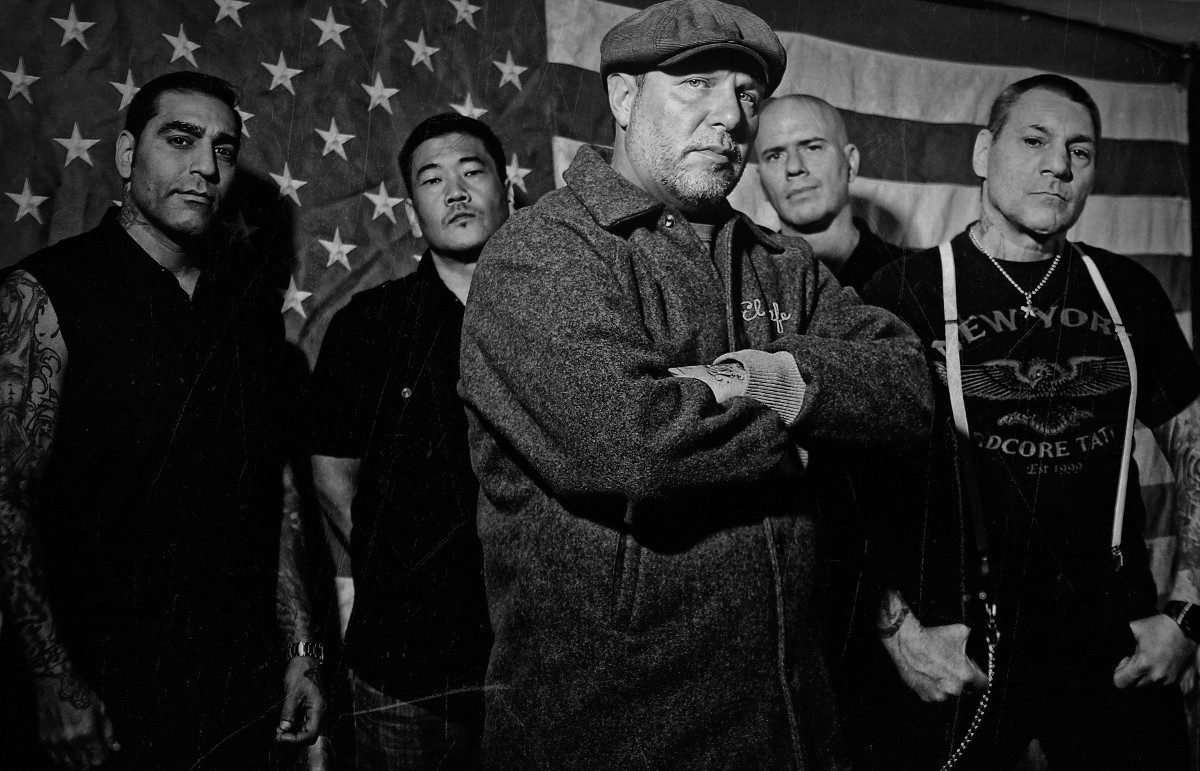
AFL: Hey Roger, thanks for taking time out for the interview. First off earlier this year at the Bay Festival you mentioned something about Having to have a heart operation and have surgery on your arm, how are you in particular how’s your health?
Roger Miret: Oh yah right. The thing about that question, is it’s a good question but (laughs quietly ) I was told that we weren’t going to talk about that.
AFL: OK no problem.
RM: Only because you read the book so in the movie, that no-one has seen yet. Titled the Godfathers of Hardcore is where I talk more about that. I promised the producer I wouldn’t talk about it.
AFL: Your life and music carrier is well documented. You also have a ton of interviews on the internet. You have told your life story with you book My Riot , Agnostic Front – Grit, Guts and Glory, which was released last year. These days you are recognized worldwide, and have gone from infamous to truly famous.
Have you finally been able to reap any benefits of your notoriety? For example unlike what you describe in you book, about not being able to get a discount at a record store?
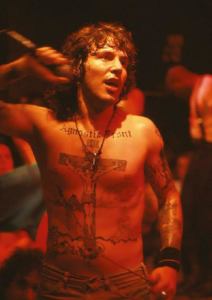
RM: (laughing). Well it ain’t that bad anymore. But yah um, you know I don’t really expect much. I#m really glad you asked this question. I was just at a local record shop here in Phoenix. Owned by a really nice guy named Mike and called East Side Records. (45 W Southern Ave, Tempe, AZ 85282, USA). I go in and see some of our (AF) records marked for 13$. Mike sees me and just because of who I am, he says „ just give me 10$“. I was like no, listen it’s just 13$ I’m here to support your store support what you do. I’m a lot about that, you know I feel like that, one hand washes the other over here. I’m thank full and great full that people carry our records or whatever or Hardcore and Punk records and whatever, so I’m not looking to get anything discounted or special. To be honest with you I think I’m like that with all things in life these days. Because I’ve had people try to give a discount for something. I’m like I would rather not because I want to give you the regular price for your time, merchandise or whatever. Because I don’t want to feel like I would owe you anything. Also at the same time I’m looking out for you to, Know what I mean? That’s just who I am.
AFL: Reminds me of something Sigma said, support your local scene.
RM: Exactly, so I’m like that you know. I’m not trying to get nothing for nothing over here. I understand peoples hard work. I’ve done hard work my whole life, so I get it.
AFL: B: NEG: Does your notoriety cause you problems in your day to day life? For example can you walk down the street and not get moved by fans?
RM: (Takes a deep Breath) Ah yah I could. Whats really funny and interesting at the same time. As you know I’m over here in Arizona now and everything is a little bit chilled out over here. You know there really is no walking down the street man ( laughs softly) everything is about a car over here, you know. When I was in N.Y.C. it was all walking down the street, a normal walk is quality of life
for that side of the fence , you know. It’s funny because I went back to N.Y. with my brother in law a while back to play a show and it everywhere I went it was either a Fan or somebody who knew the band, on a train or on the street would come up and be like hey Roger. I was pretty cool, like such a small world. You don’t notice it, I’m so used to it at shows rather than spontaneous on the street. But Yes It does Happen. I was on my honeymoon with my wife for example on the island of Kos in Greece and had people come up to me randomly, happens all over the world. I’m not getting mobbed, it’s respectful and that cool.
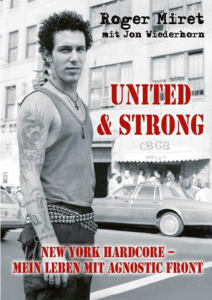
AFL: Have you ever had problems with groupies or received hate mail or something like that?
RM: Um, hate mail for sure. Look till this date there are people who don’t like me or the band, whatever I just don’t focus on those people. I direct my attention towards people who want change or the same stuff I talk about. There’s always a hatter out there is always someone who doesn’t like you, your band, what you do or stand for and that’s for sure and been that way since the beginning. What’s funny about that is a lot of that started within my own friends, I talk about it in the book. I couldn’t believe it, I thought that after our first tour people would be like wow you guys did it and are just great, blabla. But instead there was jealousy. That happens, and there are people who don’t like me and I just don’t focus on them. I would rather stay on a more positive edge, but I’m alert and not stupid. I’m not waking blind, I’ve done my time I’m a very cautious person. I know how to be approachable. The way I am I treat people with respect, I demand it back. look If I’m going to treat you right you treat me right. If I’m going to treat you good and you going to treat me unexpected or something weird then that’s it you know what I mean. I treat people how I would like to be treated. I’s who I am. That groupie stuff back then you know in the beginning you had that whole sex drugs and rock and roll thing. That doesn’t happen now, There was a time and a place.
AFL: Since you published your book have you received blow back, has any one come out and tried to sue you?
RM: (laughing lightly) No man. But I was concerned about some of that stuff. The whole process of the book, aside from laying it all out there. Is that it went through three editors and then a lawyer to make sure that there wasn’t anything incriminating or connecting me to people in that matter. Also to incriminate other people. There were a couple of things that had to be changed, because of professional people so as not to ruin their reputation, things can happen. But nothing crazy. I don’t think I did something malicious at least it was never my intent. I’m not that kind of person. I’m not trying to knock anyone down, I think I’m a modest type of person. I hope it came across in the book. I’m not trying to show off or anything bla bla bla, there is a couple of things I said, that were said just for sake of the story. There are defiantly the repercussions and the reasoning and regrets here and there, Know what I mean it is what it is.
AFL: I’ve been a fan, and going to your shows for 35 years. Just 5 years ago I would look around at a show and think wow I’m the oldest guy in the house , except for the band, of course. But today that’s no longer true. Have you noticed an age demographic change over the past few years?
RM: Well yeah, people who grew up with us and stayed with us. I think that’s the majority of our audience for sure. There are some new people and younger generation. We welcome everyone. There’s people who come down to see us with their kids. It’s a family event. We are older, we are a band for 35 years, since united blood. So it is expected for those people who have been with us this whole time to be at shows and it’s cool. Of course you know that we welcome everybody . It’s defiantly now more of an family affair and I’m great full.
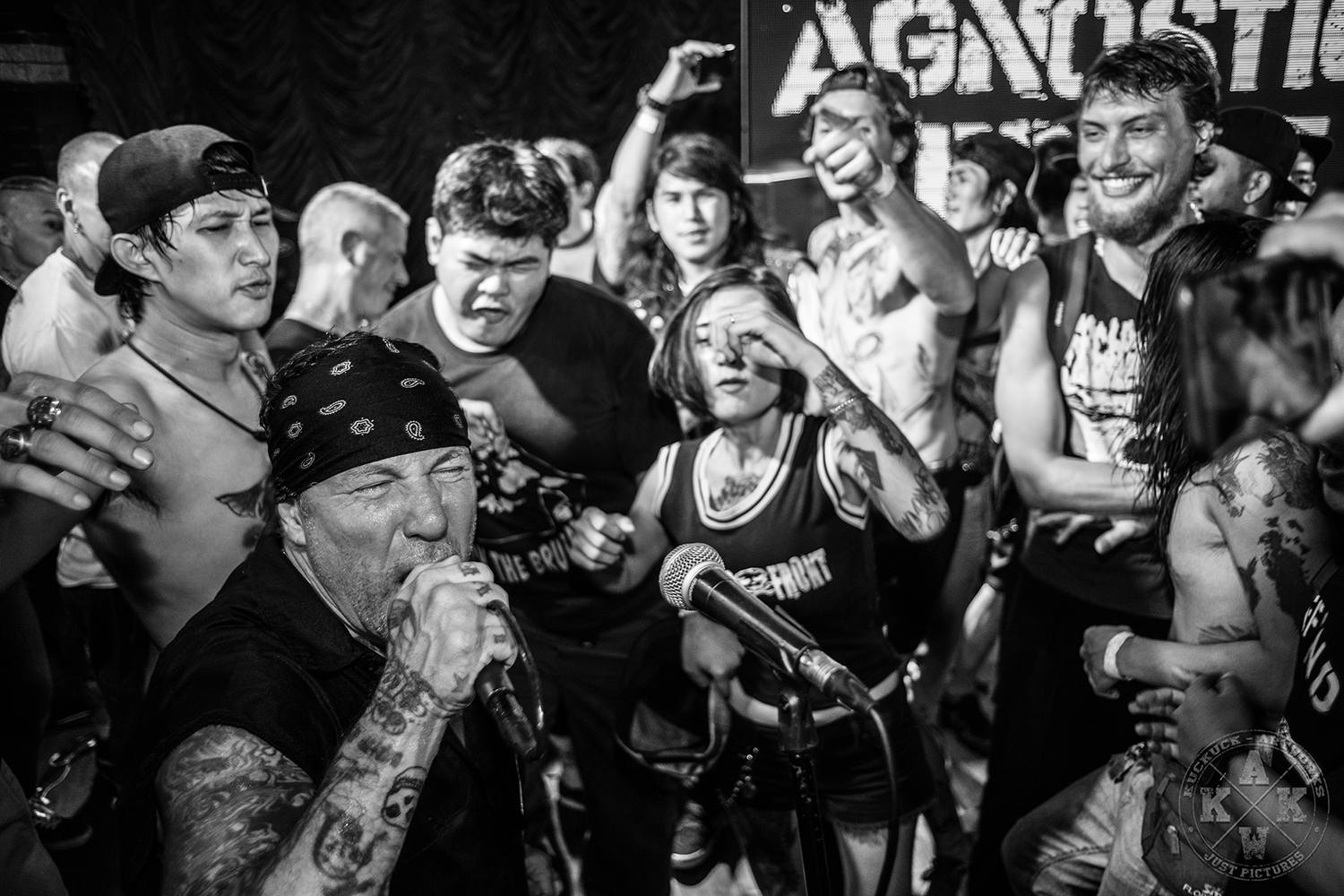
AFL: Like you say in your book’s epilogue, you don’t want to live fast and are too old to die young. AT 54 years old do you find it hard to connect with the youth of today and do you feel that you still have something to contribute?
RM: I still feel like I have something to contribute and I don’t find it hard to connect at all. I think that the world we live in today isn’t so off from the world I talk about in the book ca. 1981-83. The generation is different and there is a generation gap for example electrical components and things. The youth of today has a lot more stuff that we didn’t have like internet and cell phones. I think they are a little spoiled and we had it harder. At the same time these are great tools that you can use to look into the history and look back and respect your roots to know why you are involved in the things your involved with. I’m like that. If I’m into something I like to know everything about it. You know you want to know 100% of what your into. You like to feel like your connected, so that tool is a valuable tool though have which a lot of people do, which is really cool to have. It’s like I say in the book it’s no longer my party like it was back in 1980-1981. But I’m welcomed, I’m welcomed to a lot of things. Because we have always had a lot of respect for the newer younger generation and new bands. We brought a lot of younger bands with us on tour and have supported them the whole way. I think It comes back around in a way.
AFL: Throughout your book you talk about how Maximum Rock n Roll magazine screwed you over, Being part of a DIY Zine I’m kind of shocked. If I wrote something bad about AF, I’m sure I would get jumped at the next show. How did they get away with talking shit about you? And is there still bad blood between you?
RM: I don’t think that there is bad blood anymore. The funniest thing is , a really good friend of mine named Bruce was a writer for Maximum Rock n Roll. He was also in my car club the Rumblers. Wanted to write a piece, because he was tired with all the shit that went down back in the day, cause he grew up in that era wand wanted to get shit straight. I didn’t think that they would actually run the last piece before he died. Fortunately they ran his piece after he died. The piece is round 3 years old now but Bruce did a really nice job on it. I’m not trying to trash talk anyone. I understand the DIY stuff especially the fanzines and stuff which are very important in our scene. What I’m mostly trying to pinpoint with that is, there was a lack of communication.
In the book I tried to make that clear. They were on the west coast and we were on the East coast. They had a situation, they had a problem and basically I didn’t even know what the hell they were talking about. It was probably vise versa and they didn’t know what we were talking about. When we first went over to the West coast is where I saw all the craziness that was going on. We did not have any of that back in N.Y. People got along with one another. We learned how to live and respect one another. N.Y.C. is a melting pot, you have all kinds of races and religions and none of that really came into play in New York. I’m really not sure how to explain it. It wasn’t until I went to the West coast did I see these giant hate groups, in-effect! Then I understood what they were talking about, but at the same time you can’t judge a book by its cover. Saying that everyone who looks a certain way must be a certain way. And that what was wrong. Then we had all that negativity and challenges that we had to deal with personal at shows. And that wasn’t fair.
It put us situations that were dangerous, we had to then do what we have to do. All because they wanted to pinpoint and say something that wasn’t honest or true. Something else that was crazy about it and I think I mention it in the book. We actually got to meet the one guy, we sat down and talked and then we thought everything was cool. But they still talked shit. We even had a bet about whoever took him down would get something. Thing about it was this guy was old back then. It was one of those things, now it’s all right. I don’t feel that I have any feelings. It’s just what happened there was that you get too big and you believe yourself and your the word of everything and the it. You kinda got to get out of your inner circle and stop talking about bands you don’t even know. And linking them to associations that they have no part in.
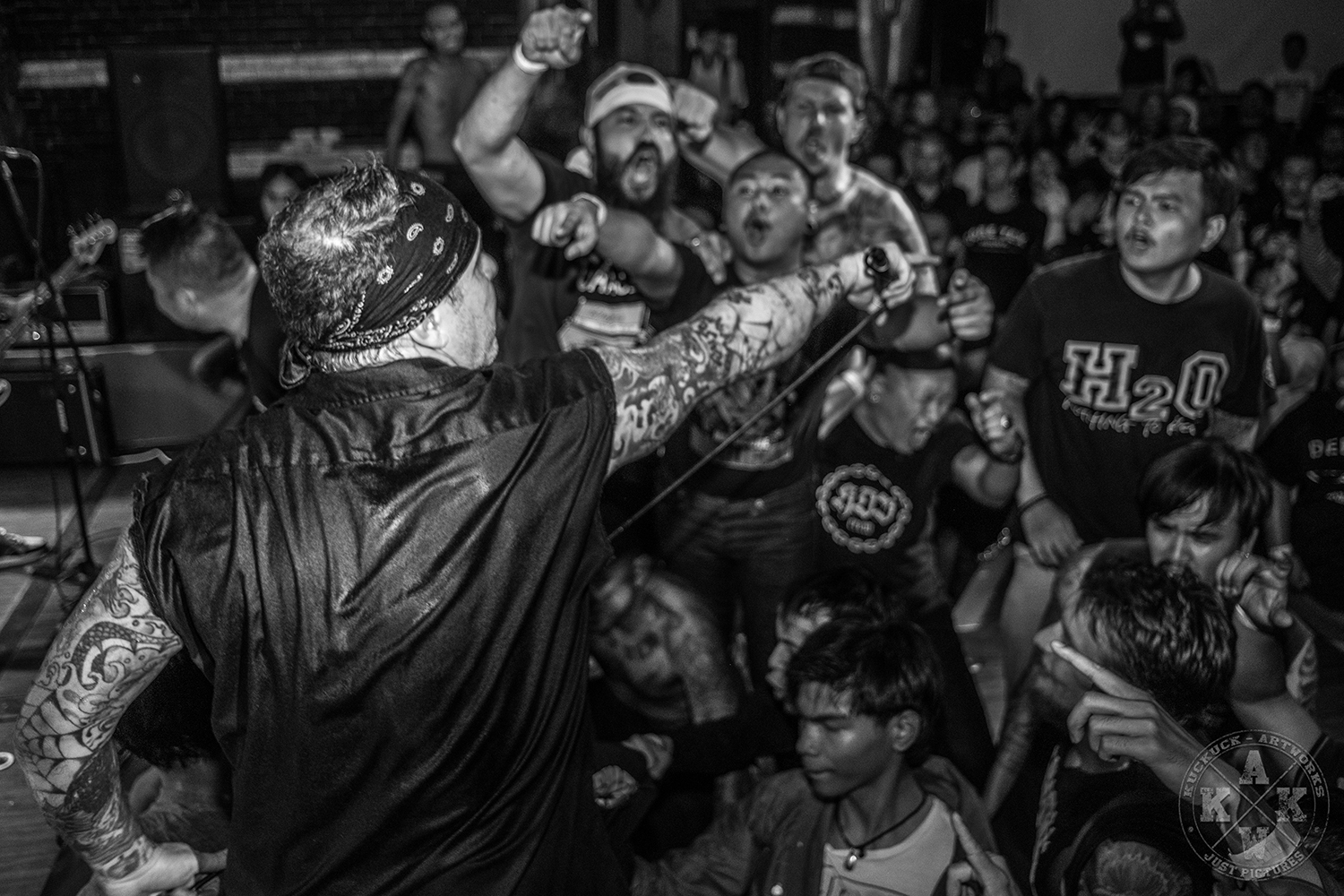
AFL: With your book, and John Joseph and Harley writing books, there seems to be a correlation giving credibility to the truth of how life was back in the early 80’s on the LES. Still a lot of people can’t come to grips with the way it was and are still in disbelief, especially when they visit NYC today. How do you feel when you visit the LES and NYC today?
RM: Well you know hey, anybody who’s been around for a lengthy period of time like ourselves can kinda relate with that, I’m sure. Like Berlin 35 years ago was not the Berlin your looking at today. If you know what I-mean. Especially the Lower East Side and other areas that we grew up in were straight up poverty. It looked like a bomb hit i. If you went to Avenue A,B,C,D on a whole block´ you maybe see one building standing. I mean it is documented. If you don’t want to believe Me or John or Harley believe whatever. You just have to look at footage, you can go on-line. Pull up footage L.E.S. 1980 go look at that. Then look at it now it’s pretty clear, it’s documented film/ photos it’s not a fairy tail it’s reality man. It was defiantly a different time , a different place. It’s funny you’ll read my lyrics in Victim In Pain and walk around the Lower East Side and be like what the Fuck is he talking about.( laughing ) You Know it was a time and a place.
AFL: In chapter one you talk about how you find it strange that American Cubans don’t like native Cubans. Is there still an enmity between the two?
RM: Not within the Punk scene, I think. I’m friends with a couple of Punk bands in Cuba, I think people put all that stuff aside. They’ve got to live with what they got to live with out there. It’s a crime not to be Pro-Castro in Cuba. You have to be careful what you do or say even who you are. Those who speak out end up in prison. People don’t understand how lucky they are in some countries where you can say anything you want. They have those struggles but there is defiantly a connection. In the 1970’s and 1980’s it was worse. There were people who were forced to leave. I was a kid when I came to the U.S.A. with my mom. I hold no grudges with anyone over there.
AFL: I found the level of physical abuse you and your siblings suffered when you were young extreme even when back in the day it was common place in a lot of families to get the belt for missing curfew or like offenses. Have you and your siblings ever gone to therapy or counseling?
RM: I did. I don’t think my brother did and I never really asked my sister. There was a time where I put everybody in a room (laughs, ha, ha) when they came to visit me in New York. I had been going through therapy for few years. I asked them to join me, and they came. It was pretty interesting . It was just one time for about an hour and a half session with the whole family. It brought my mom to tears, she didn’t want to hear it. Especially stuff that was said. A lot of things were opened up. What’s even more important is the book itself. After the book was finished the first people who got the book were my siblings. I think my sister and two brothers and mother I wasn’t sure how they were going to feel about it. I told my mom about what I was writing and asked how she felt She said „ write what you want, it’s your story. My family read the book and my sister was like wow I can’t believe you wrote some of that. But it’s great that you did. Especially Freddy, he sent me a really long E-mail and his wife also read it and they were like bro this is probably one of the best things we’ve ever read. We all know our families secretes bla bla bla, but Freddy was relived. He was relieved that it was released. I think that everybody was holding on to something. He also got to see the film which ties it all together. By the way I hope you get to see the film which will be out next year ( trust me on that). You’ve read the book, for me it was the whole process, it was therapeutic. When my family when they read it
AFL: Do you advocate or support any outreach programs or groups to help children from abusive and dysfunctional families, or any other charities?
RM: I’ve been supporting different things, including groups and bands over the years. Back in N.Y.C. around Christmas I used to put on a show for 5$ where people would bring a can of food and i would donate it to the shelter where I used to go and eat. I would also do a Christmas Run for terminally ill children. I even came across a flyer from one those shows at CBGB’s recently. I would take the money from the show and go to Toys „R“ Us with a bunch of friends and randomly go through the aisle and pick out toys for the kids. We usually got a discount on the toys which was cool. We would show up like Santa Claus and give out toys to these kids who didn’t have long to live. That was pretty cool. I found it personally rewarding. That was stuff I did back in New You. It’s hard to do that today because N.Y. isn’t the same place.
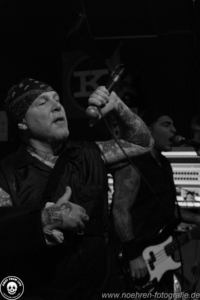
AFL: In part II of you book you talk a lot about Raybeez you describe him as a great friend and at the same time a dust head, criminal ring leader and poor musician. Did he change his ways or stay like that till his death? (Page 72 – 76)
RM: Oh he definitely changed from doing dust. Criminal stuff who knows, I think so . We all changed especially around that time. We are talking 1997.
AFL: By coincidence today is the 11th of September.
RM: Oh yeah we all know what day this is. So Ray definitely change his ways by that time and so did I. To date music wise I don’t think ( laughing ) any of us are musicians. We’re just a bunch of noise makers, whatever. In the book I say all that stuff. At the same time I was in on it to. I’m not saying that I was the better man . I was guilty myself of the same three things we are talking about.
AFL: I remember Raybeez as a friend to all. Was the way he acted just for show? Did you ever experience Raybeez being violent to someone in the scene or at a show.
RM: No he wasn’t like that. None of us were ever malicious. We always tried to help people out in some way. Not until met these people in the Hardcore scene Raybeez being one of them. Did I ever feel such a family connection. I think that there was a lot of generosity and realness there. It wasn’t just on stage or for the cameras or to interviews or whatever. It was just an all-around thing you know. I experienced some really good friendship with him and I think we all were that way. If you were there to be part of something we were part of. We were like our own tribe. We had your back and you had ours, there was a connection there.



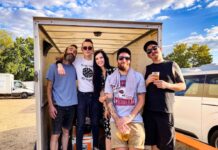
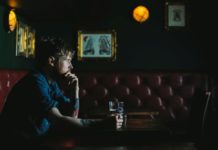
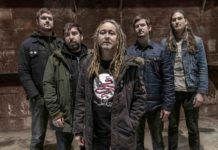
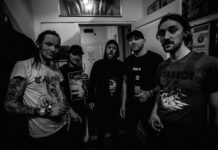
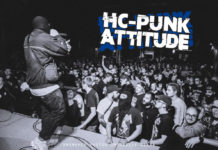
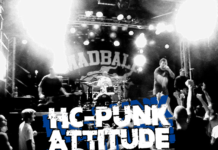

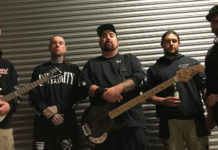
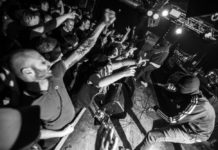
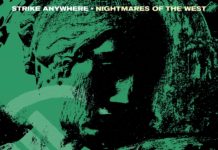
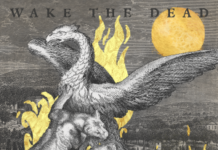

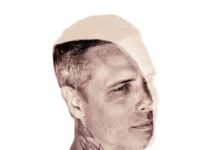
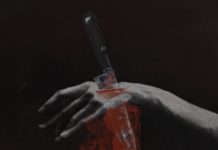
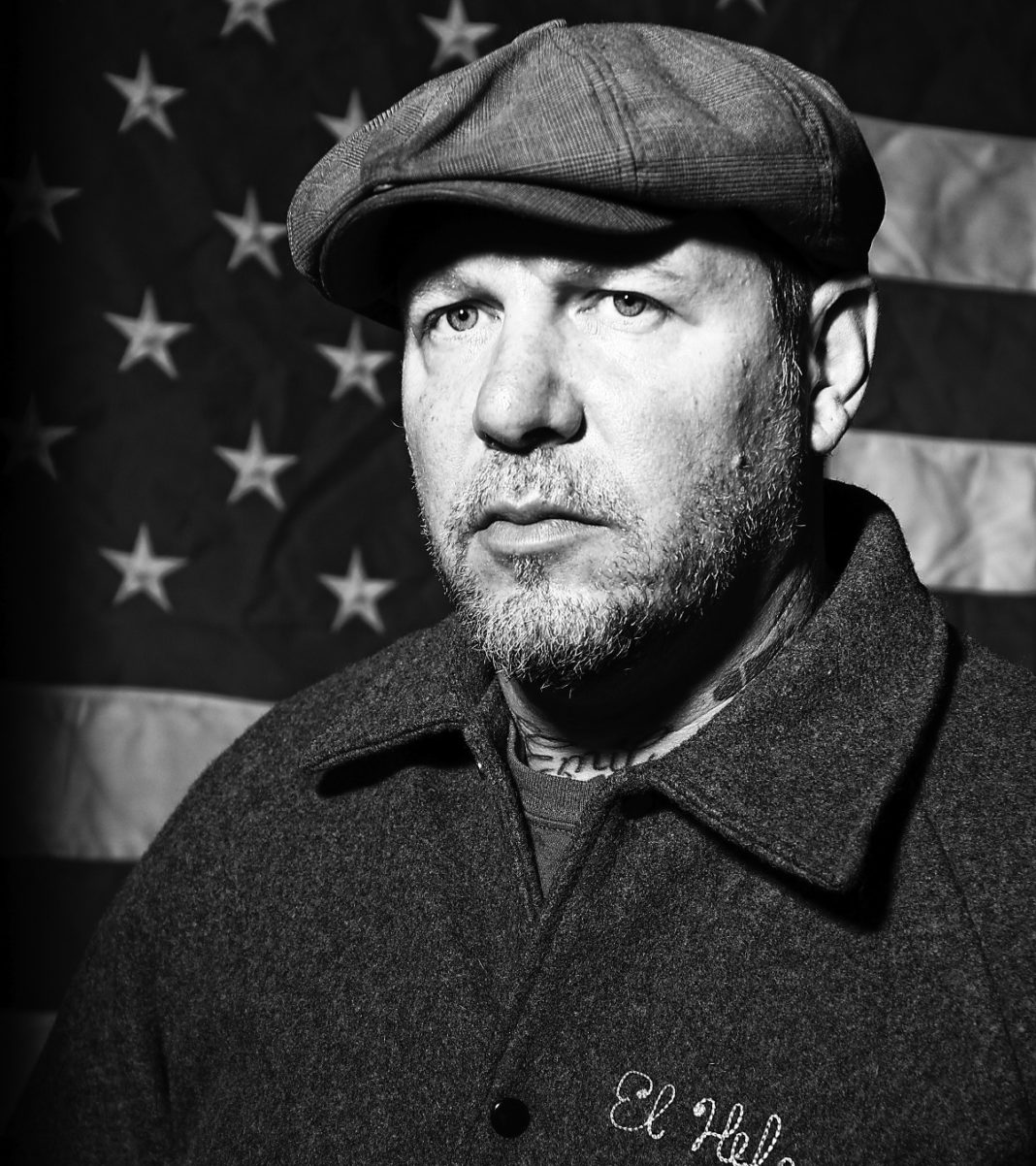





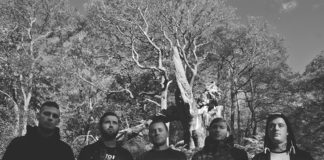
[…] Interview with Roger Miret of AGOSTIC FRONT (Part 1) […]